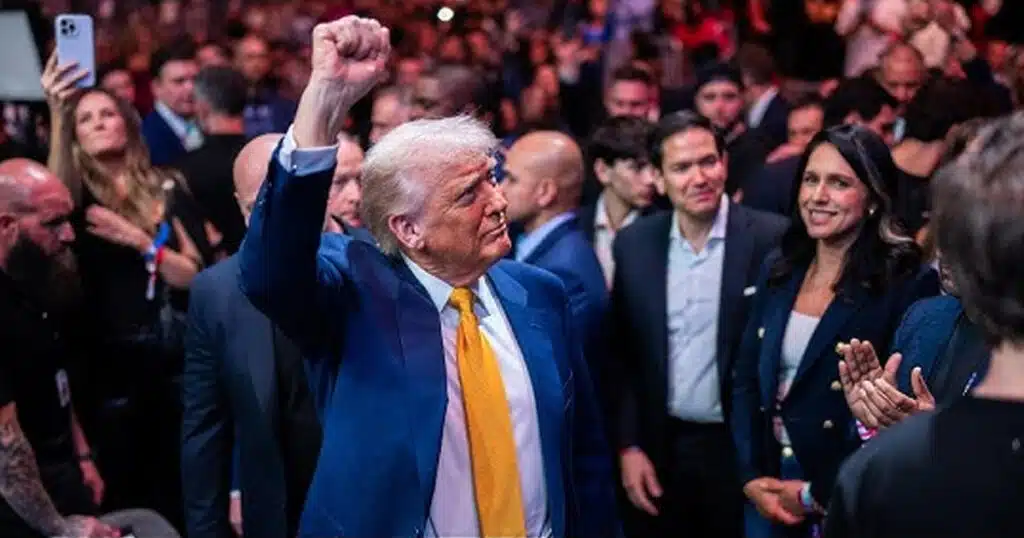
Big Beautiful Bill a Great Beginning, Stops Largest Tax Increase in History
While I have worked in and observed the U.S. Congress for many years, I have never seen a perfect bill—a perfect piece of legislation. This one is not either, but it’s a great start!
Let’s review relevant portions of the bill that passed the U.S. House last week and is headed for the U.S. Senate, which will likely amend it to some extent but not, I hope, in a way that fundamentally alters the positive policy in it.
Broadly, the bill makes the 2017 Trump tax cuts permanent and institutes no-taxes-on-tips and overtime, includes a large tax deduction on Social Security, and also includes provisions related to U.S. immigration—such as curbing illegal entries and finishing Pres. Trump’s wall along the southern border. It further includes the single largest welfare reform in American history, including requiring that able-bodied males, who were never intended to be on the Medicaid program, get a job to remain on the program; and removes hundreds of thousands of illegal immigrants from the Medicaid rolls. It also advances the most aggressive energy exploration in American history which will benefit our beloved Louisiana. All while reducing the deficit.
Specifically, this includes permanently extending for individuals the tax rates and brackets of the 2017 Trump Tax Cuts and Jobs Act (TCJA), providing greater certainty for households. The bill also permanently extends the larger standard deduction and the alternative minimum tax threshold. These two provisions alone greatly simplify the tax code. (Tax Foundation, May 23, 2025, D. Bunn, A. Muresianu, W. McBride).
There is also now a permanent basis for expensing certain equipment for smaller businesses. Regarding the estate and gift tax, the bill also institutes a permanent (and inflation-adjusted) exemption level of $15 million that begins in 2026.
The bill also makes improvements to cost recovery for U.S. businesses relative to current law. The bill reintroduces expensing for investment in equipment and domestic research and development (R&D). The TCJA’s less restrictive limitation on interest deductions is also brought back. These are important policies that will greatly increase business investment and the economic benefits of the bill if they are made permanent. The bill also reduces some of the tax code’s many tax credits, deductions, and other preferences.
The largest area of reform involves green energy tax credits: the bill cuts about $500 billion over a decade, reducing the cost of these credits by roughly half—like those for electric vehicles (EVs) and residential energy products—while most of the others are restricted or phased out more quickly.
The bill also permanently extends TCJA’s itemized deductions, such as for mortgage interest, and limits each dollar of itemized deductions for top earners. The bill also increases the TCJA’s $10,000 cap on deductions for state and local taxes (SALT), raising it to $40,000 for taxpayers earning less than $500,000. (Id. Tax Foundation).
Please allow me to address something else.
Elon Musk, to whom the country should be eternally grateful for the DOGE (Department of Government Efficiency) team’s discovery of enormous amounts of waste, fraud, abuse and corruption, commented on the House passage of the bill stating “I was disappointed to see the massive spending bill, frankly, which increases the budget deficit, not just decreases it, and undermines the work that the DOGE team is doing.”
Fair enough, Elon. My only response to his concern would be this.
House and Senate Democrats will offer no votes to help pass the bill, so Republicans are left with only one option. To get a typical bill through the U.S. Senate, 60 votes are required to end debate (i.e. break a filibuster) and vote on legislation. Well, there are only 53 Republicans, so Republicans are forced to use a process called “reconciliation”—which only requires a simple majority—to advance the Trump agenda through the U.S. Senate.
That’s what is happening here. Based upon Senate rules a reconciliation bill may only deal with mandatory spending, such as Medicaid, while the cuts that Elon and DOGE have recommended are to discretionary funds. Those cuts are coming next. Speaker Mike Johnson has made clear the House will codify the DOGE-recommended cuts when the White House sends a package of spending that should be rescinded.
Legislating is never easy, but we are on the cusp of very positive economic and tax change for the American people. I think Pres. Trump deserves our support as he grinds through the legislative process.



